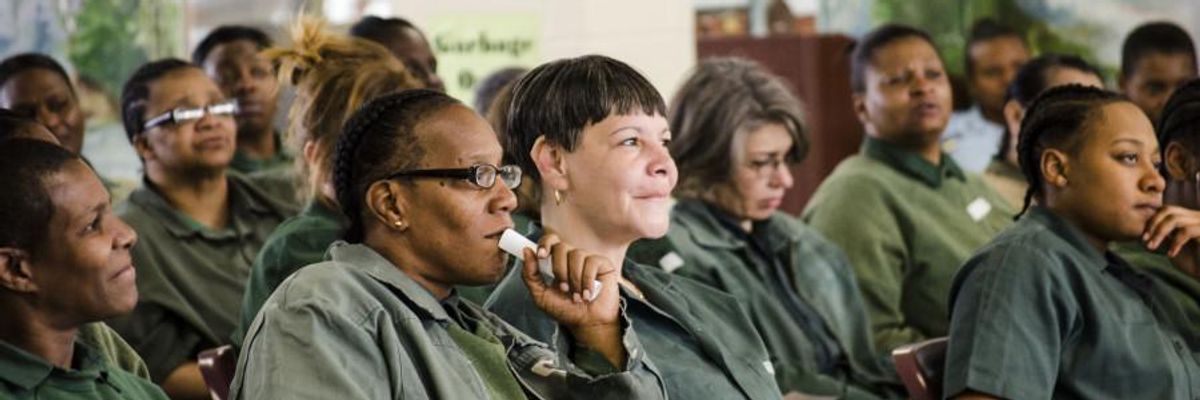It's becoming popular in the media to talk about the missing millions-- the 1.5 million African American men in their prime who are missing from civic life.
Those millions, it's explained, are mostly missing because they've died young or been locked up. There's been a catastrophic rise of incarceration in the US over the past four decades. But missing from the "missing-men" stories are the women whose rates of incarceration have risen fastest of all. In 2013, approximately 111,300 women were in US prisons, a 900 percent increase over 1977.
They're absent from our streets and also from this coverage.
As every study's revealed, the majority of incarcerated women are non-violent offenders with little education or employment experience, and lots of history of abuse. Girls of color are more likely to be locked up than white girls. Gender non-conforming girls are most likely of all, and two thirds of incarcerated women have kids.
They're not missing. They're missed. Incarceration tears families and communities apart.
To let some women know they hadn't been forgotten, three young activists recently organized a performance in a women's prison, Taconic, about an hour outside of New York City. As prison policies tend to have men, not women in mind, they brought a play by, with, and about women: Eve Ensler's Vagina Monologues, and to perform, they brought professional actresses, activists, and three women who'd served over half a century between them, in the maximum-security prison across the street.
Coming back, and watching their audience stream in, the cast fell quiet as women saw women they'd left behind inside, and guards saw women they'd not seen since they'd got out.
Visitors and prisoners are not allowed to hug, or get close or touch. Separation is sternly enforced. Still, after 90 minutes of laughing, crying, whooping and tearing-up together thanks to the tragi-comic Monologues, all the women were feeling a lot. Before they left, they semi-circled into a group air hug - old arms, young arms, arms in silk, arms in made-for-men green cotton prison tops - reaching out, towards one other.
The missing aren't missing. We keep them at a distance. What if we broke that distance? Those inside aren't missing; they're waiting - on us - for justice. They aren't missing. We are.
Join me, May 8th, for Risky Talking: a conversation about risk, confinement and escape, with Piper Kerman, whose memoir Orange Is the New Black: My Year in a Women's Prison was adapted into the hit series on Netflix, and Donna Hylton, who served 25 years in the Bedford Hills Correctional Facility and currently works as a Community Health Advocate for formerly incarcerated people. Moderate by me with MacArthur Award-winning choreographer Elizabeth Streb. Complete with wild action moments from the STREB company. Find out more and get tickets at Riskytalking.org.
